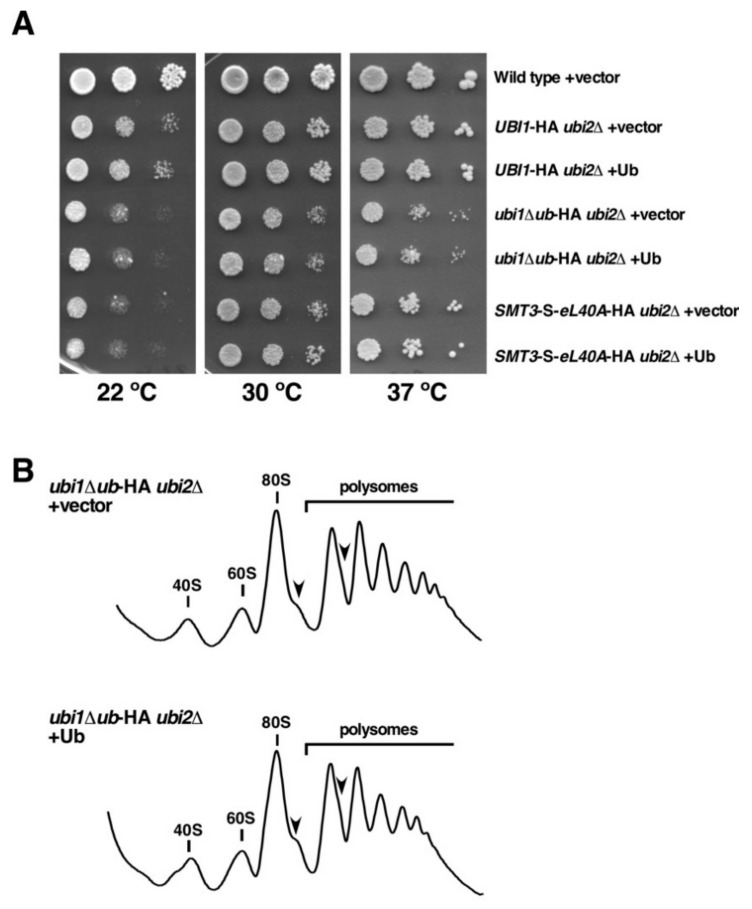Figure 7.
Expression of free ubiquitin in trans does not restore the growth defects of ubi1∆ub-HA ubi2∆ or SMT3-S-eL40A-HA ubi2∆ cells. (A) Growth comparison of the strains W303-1A (Wild type), SMY256 (UBI1-HA ubi2∆), SMY257 (ubi1∆ub-HA ubi2∆), and SMY258 (SMT3-S-eL40A-HA ubi2∆) transformed with either empty YCplac111 (vector) or pADH111-Ub (Ub), a YCplac111-based plasmid expressing ubiquitin from the strong ADH1 promoter. Transformants were selected on SD-Leu plates and then spotted in fivefold serial dilution steps onto SD-Leu plates, which were incubated for 4 days at 22 °C, for 3 days at 30 °C, and for 2 days at 37 °C. (B) Polysome profile analysis of ubi1∆ub-HA ubi2∆ cells harboring either empty YCplac111 (vector) or pADH111-Ub (Ub). Cells were grown in SD-Leu at 30 °C to an OD600 of about 0.8. Cell extracts were prepared and 10 A260 units of each extract were resolved in 7–50% sucrose gradients. The A254 was continuously measured. Sedimentation is from left to right. The peaks of free 40S and 60S r-subunits, vacant 80S ribosomes/monosomes, and polysomes are indicated. Half-mer polysomes are labeled by arrows.

